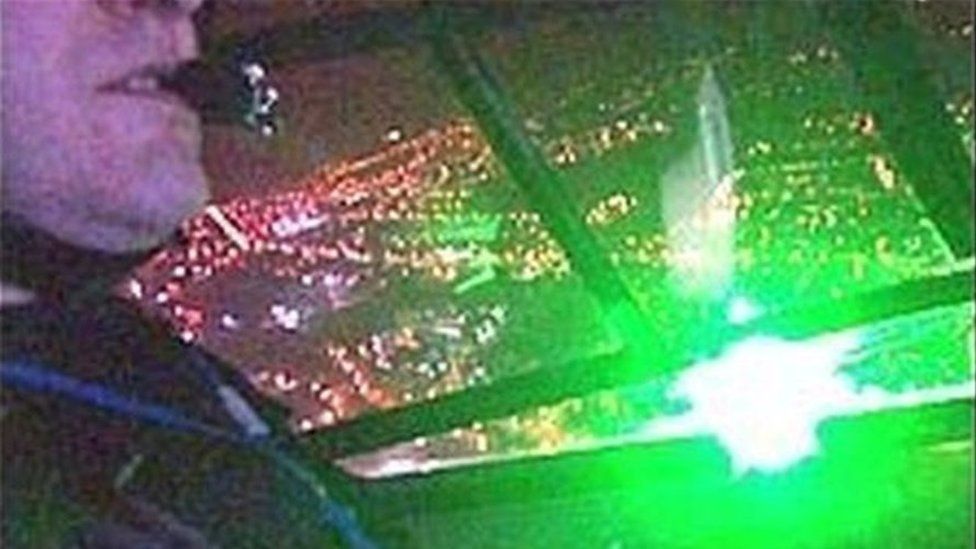Pilot laser attacks 'dangerously high'
- Published

Laser attacks at Glasgow Airport doubled in a year, making it the second most targeted airport after Heathrow, according to latest figures.
Civil Aviation Authority data suggested there were 83 incidents at the airport in 2016, up from 44 the previous year.
The British Airline Pilots' Association (Balpa) said the rate of attacks was dangerously high and could soon result in a serious incident.
It has called for new police powers to help prevent attacks from taking place.
The rate of attacks, in relation to the number of flights taking off or landing at Glasgow Airport, was "significantly high".
There were 98,127 flights to and from Glasgow last year compared to 474,963 at Heathrow Airport, where there were 151 laser attacks.
Birmingham and Manchester also continued to experience high numbers of attacks.
Incidents at Edinburgh Airport dropped from 55 to 44 from 2015 to 2016.
Across the UK, 1,258 laser attacks were reported in 2016, down from 1,439 the year before, which equates to more than three incidents a day on average.
Balpa flight safety specialist Steve Landells said: "We are concerned that at more than three reports a day this figure is still dangerously high.
"We're also concerned that under-reporting of incidents could mean that we don't have a true idea of the scale of the problem."
He welcomed the new Vehicle Technology and Aviation Bill, which proposes to increase the powers of the courts to allow them to impose prison sentences for laser attacks.
He said: "Balpa wants to see these people stopped before they commit this reckless act and we hope that the bill will give police and authorities the powers to ensure they don't happen in the first place."
'Fatal consequences'
The UK government's transport secretary Chris Grayling said shining a laser pointer at pilots was "incredibly dangerous and could have fatal consequences"
He added: "Whilst we know laser pens can be fun and many users have good intentions, some are not aware of the risks of dazzling drivers or pilots putting public safety at risk.
"That's why we want to take the common sense approach to strengthen our laws to protect the public from those who are unaware of the dangers or, even worse, intentionally want to cause harm. This kind of dangerous behaviour risks lives and must be stopped.
"There are around 1,500 laser attacks on aircraft every year in the UK and we know there have been similar attacks on trains and buses. What I announced on 5 February 2017 are plans to give the police effective powers to investigate and bring those who misuse lasers to justice."